I joined "Hack4Good" hackathon this weekend.
It is a bit different from regular hackathons in that the participants (hackers) are basically current Googlers or ex-Googlers that want to help those who needs help. Also, unlike regular hackathons that participants come up with an idea and hack, we had non-profits that has specific issues that they want help with. I think it was a great opportunity to match people who needs technical help and those who have skills to help. And in general Googlers and ex-Googlers have the spirit of wanting to change the world for the good, organize the world's information and make it universally accessible and useful, and really good at it, so I think it was great that they organized this event!
The 4 Non-profits were Charity Water, D-Rev, MapLight and Hackidemia.
Day 1 started with presentations from Google Developer Relations team on the newest Google technologies and tools that the teams can use, then Alex from Code for America who kindly provided their office as hackathon venue gave a short speech, then the non-profits gave their pitches on what they do, and what they'd like help with. Then the participants started wandering the room asking questions about the non-profits... about the data they already have, the platform they already use, what look and feel they want out of the new app/site we are creating, and figured out what project they might be able to help with, and started to form the teams.
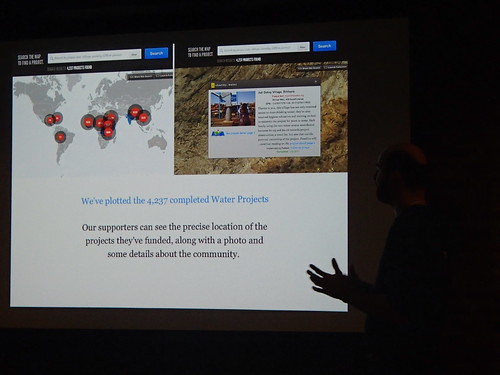
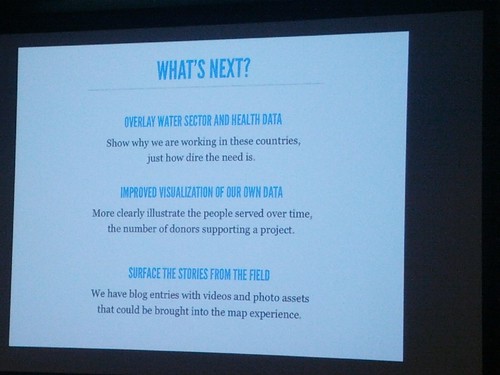
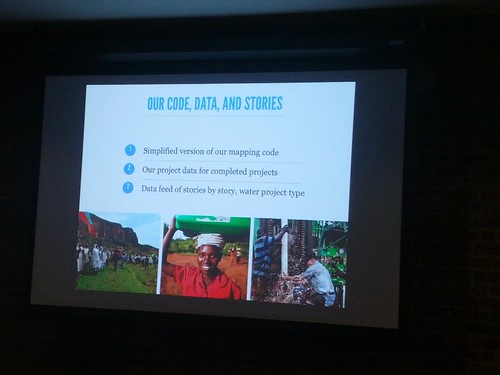
They sent their tech team here so that they can work together.
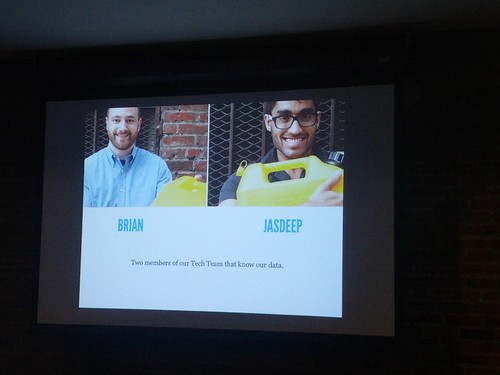
Message video:
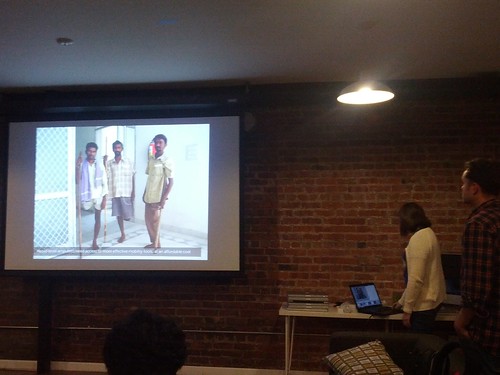
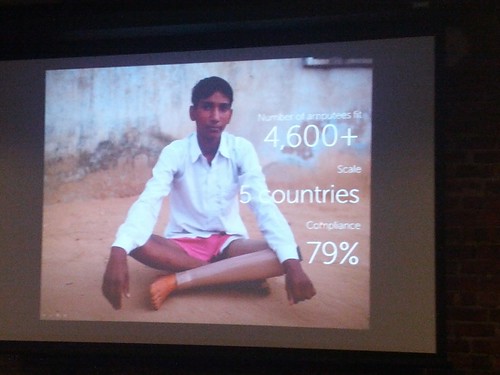
They are about to launch the next version of their ReMotion Knee - a highly affordable, world-class knee prosthetic.
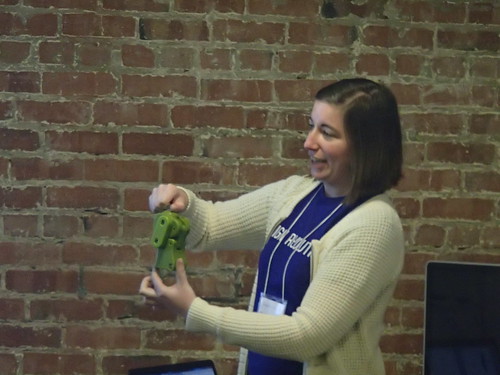
At this hackathon, they would like help in designing an integrated data collection and evaluation app for Android that will track their patients from their first fitting through their follow-up visits.
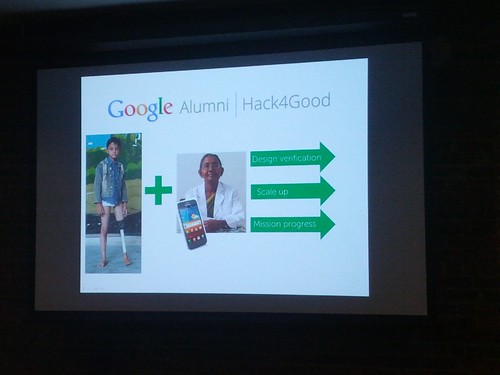
Message video:
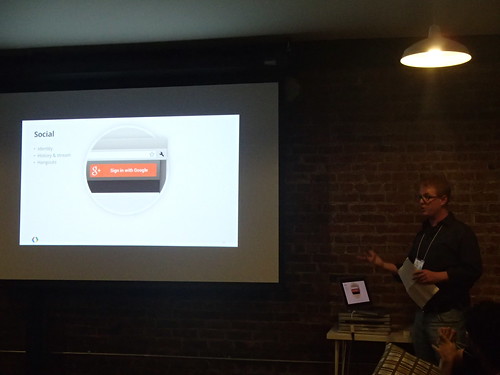

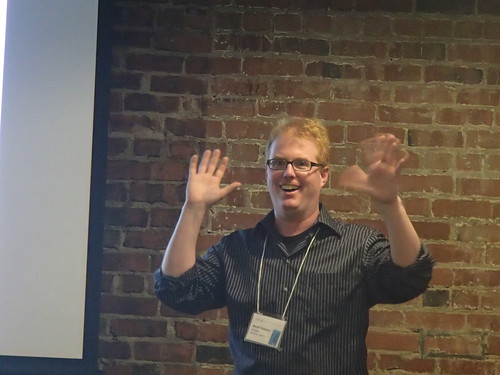
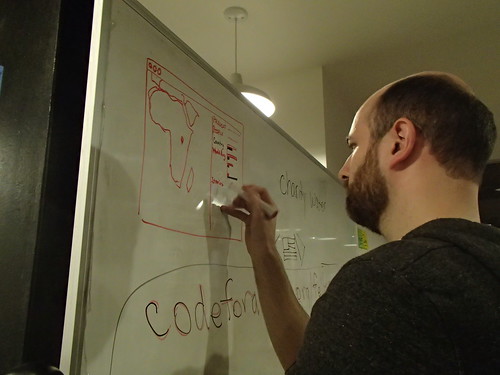
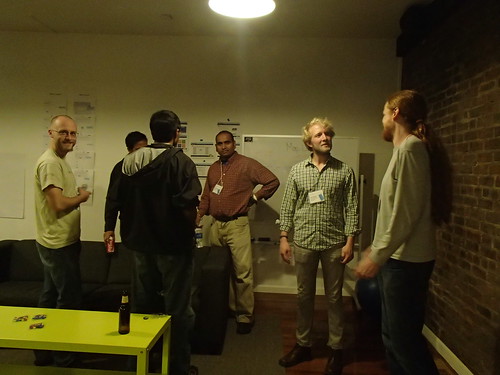
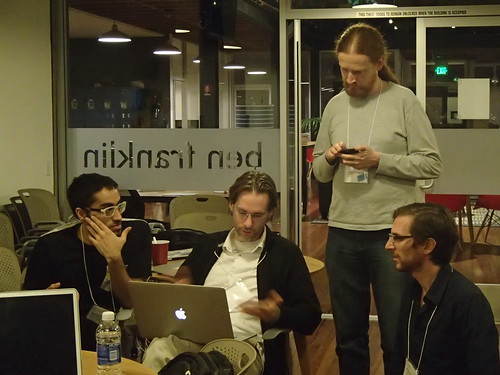
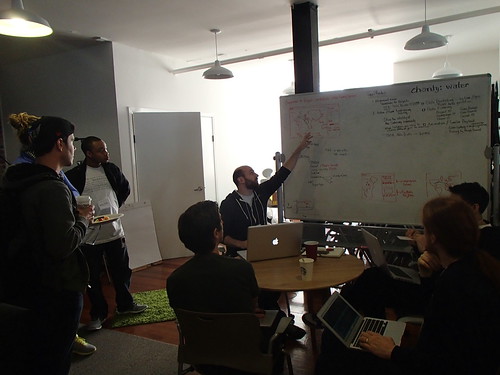
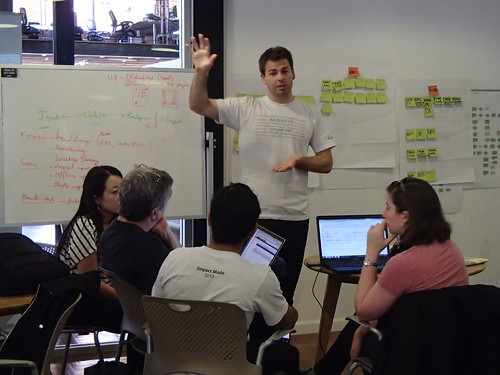
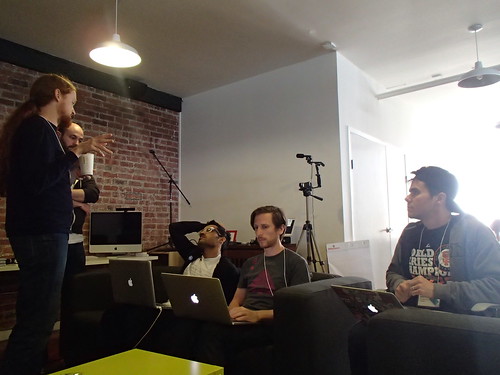
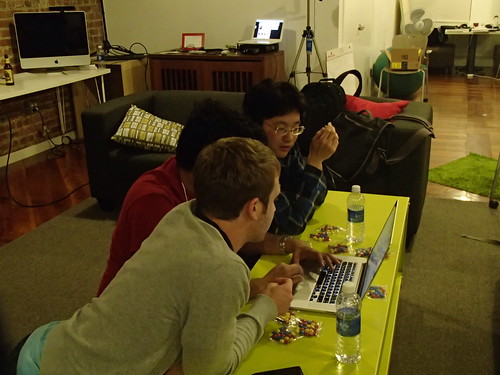
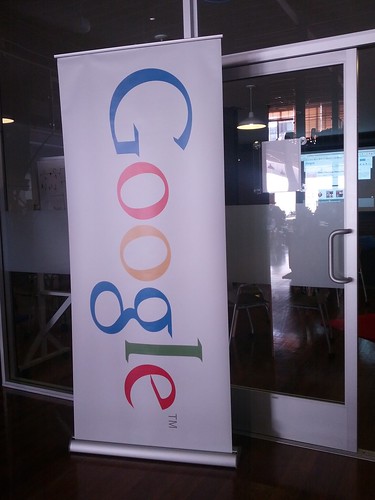
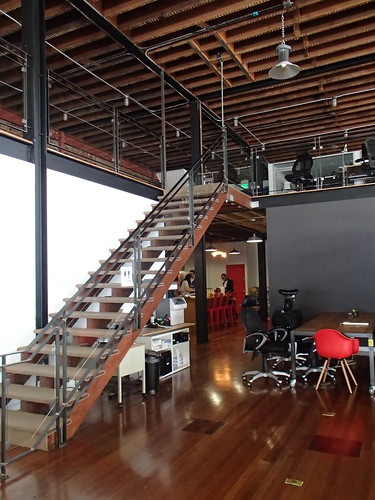
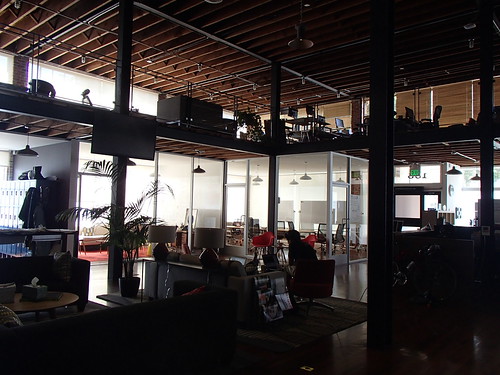
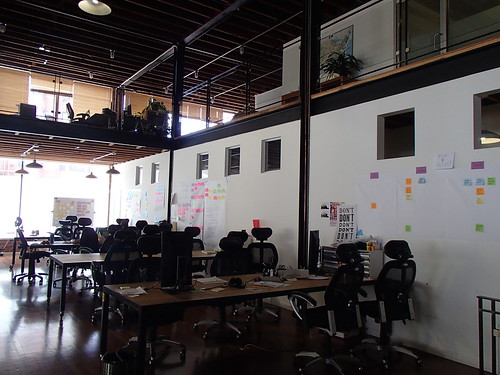
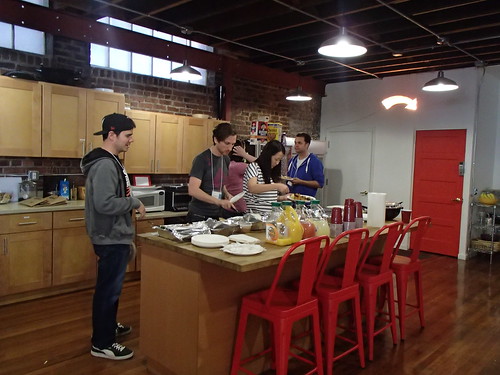
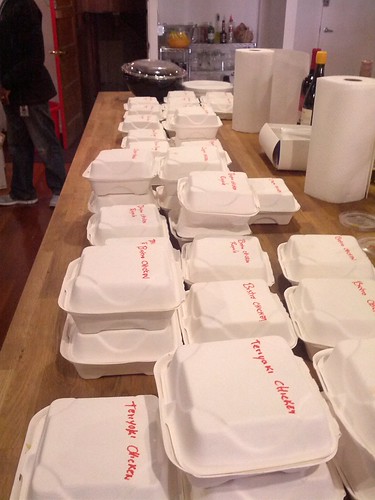
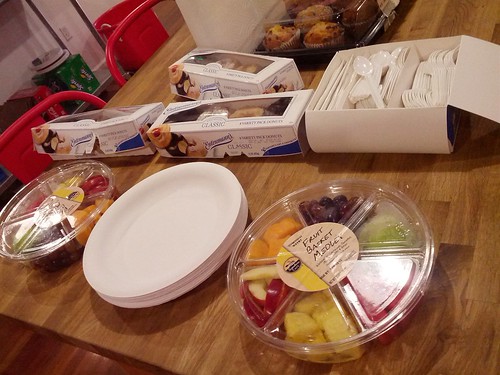
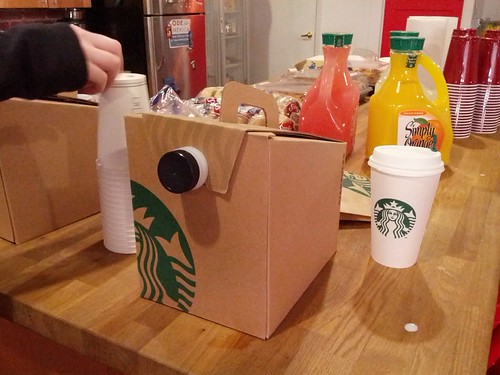
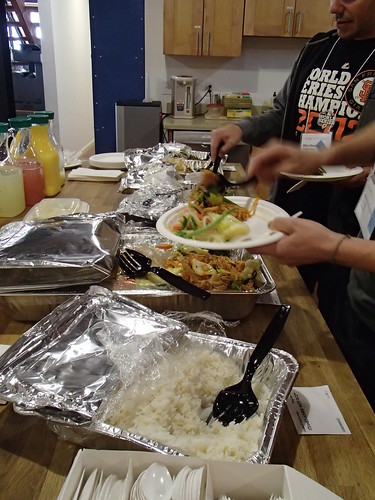
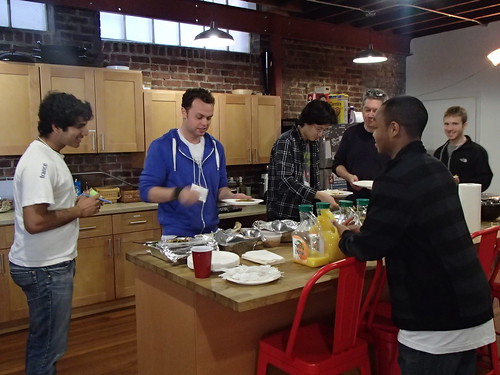
Impact: How much impact (scale and quality) could the solution have?
Complexity: Does the proposed solution have many moving parts (figuratively or physically)?
Sustainability: How well is the proposed plan prepared for implementation?
Creativity: Does use existing technology in a new way? Was the solution crated from scratch? Is its approach unique?
Presentation: How well did the team communicate their idea? How well did they respond to questions from judges?
Disclaimer: The opinions expressed here are my own, and do not reflect those of my employer. -Fumi Yamazaki
It is a bit different from regular hackathons in that the participants (hackers) are basically current Googlers or ex-Googlers that want to help those who needs help. Also, unlike regular hackathons that participants come up with an idea and hack, we had non-profits that has specific issues that they want help with. I think it was a great opportunity to match people who needs technical help and those who have skills to help. And in general Googlers and ex-Googlers have the spirit of wanting to change the world for the good, organize the world's information and make it universally accessible and useful, and really good at it, so I think it was great that they organized this event!
The 4 Non-profits were Charity Water, D-Rev, MapLight and Hackidemia.
Day 1 started with presentations from Google Developer Relations team on the newest Google technologies and tools that the teams can use, then Alex from Code for America who kindly provided their office as hackathon venue gave a short speech, then the non-profits gave their pitches on what they do, and what they'd like help with. Then the participants started wandering the room asking questions about the non-profits... about the data they already have, the platform they already use, what look and feel they want out of the new app/site we are creating, and figured out what project they might be able to help with, and started to form the teams.
== Charity: Water ==
Charity: Water is a non-profit that brings clean, drinking water to those in need. They have raised $93M over the past 6 years, funded 8,232 water projects in 20 countries and served clean, drinking water to over 3.2 million people.
For this Hack4Good hackathon, they were asking to help visualize the water project portfolio that they have and also overlay/present any relevant news or data on those maps.



They sent their tech team here so that they can work together.

Message video:
== D-Rev ==
D-Rev is a non-profit product design company that designs and delivers products for people living on less than $4 per day.

They are about to launch the next version of their ReMotion Knee - a highly affordable, world-class knee prosthetic.

At this hackathon, they would like help in designing an integrated data collection and evaluation app for Android that will track their patients from their first fitting through their follow-up visits.

Message video:
== MapLight ==
MapLight is a nonpartisan research organization that reveals money's influence on politics.
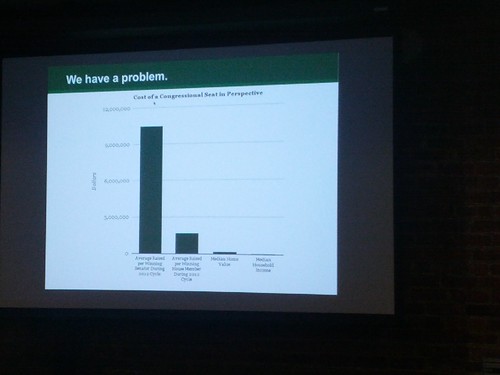
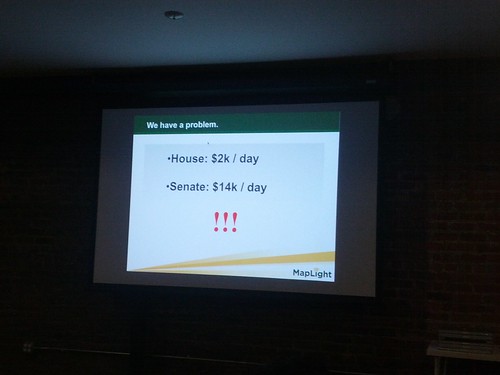
They have recently launched the most up-to-date, comprehensive federal campaign finance data set currently available for free, public use.
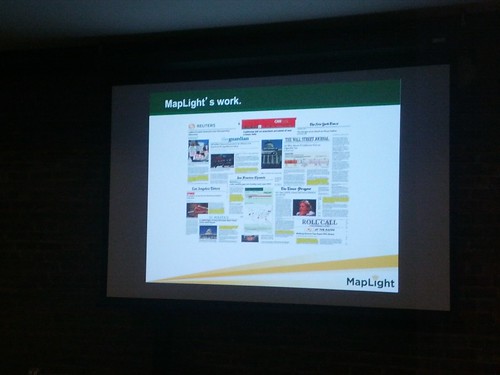
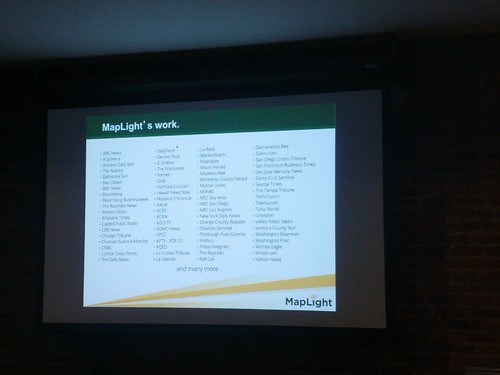
However, due to its enormous data size, the CSV format in which they currently provide the data makes it difficult for users to do more than scratch the surface of this data set without the assistance of MapLight researchers. Hence, they receive data requests from journalists and nonprofits every day, they manually run queries and deliver results. They wanted help in building a simple search interface allowing users to directly query our database and download their filtered results... an important step to make our government more transparent and accountable to us all.
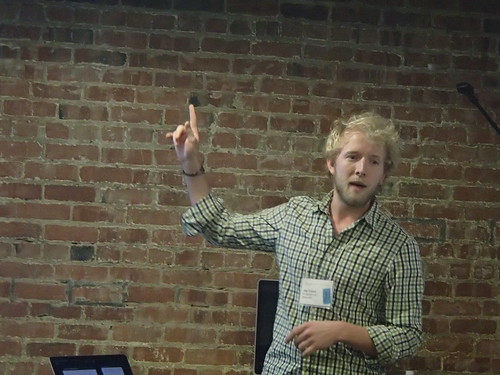
Message video:
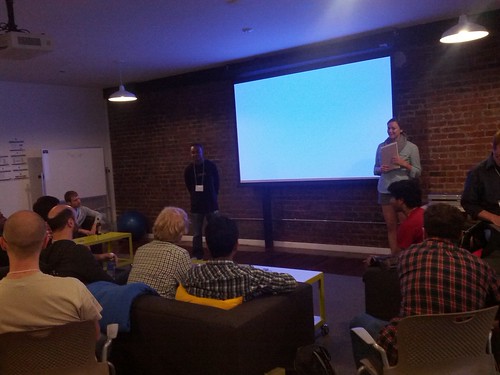
Alex from Code for America welcoming the participants.
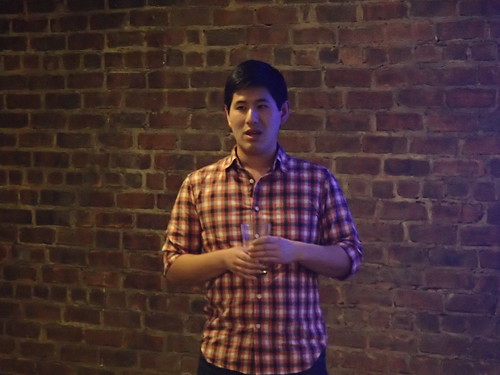


They have recently launched the most up-to-date, comprehensive federal campaign finance data set currently available for free, public use.


However, due to its enormous data size, the CSV format in which they currently provide the data makes it difficult for users to do more than scratch the surface of this data set without the assistance of MapLight researchers. Hence, they receive data requests from journalists and nonprofits every day, they manually run queries and deliver results. They wanted help in building a simple search interface allowing users to directly query our database and download their filtered results... an important step to make our government more transparent and accountable to us all.

Message video:
== HacKIDemia ==
Hackidemia is a mobile invention lab where kids can learn science, new tech, and art by doing and by playing. They design and facilitate hands-on workshops and train local team of mentors to go to public schools and do these workshops.
Video of Hackidemia in Nigeria:
Making a circuit to convert DC to AC.
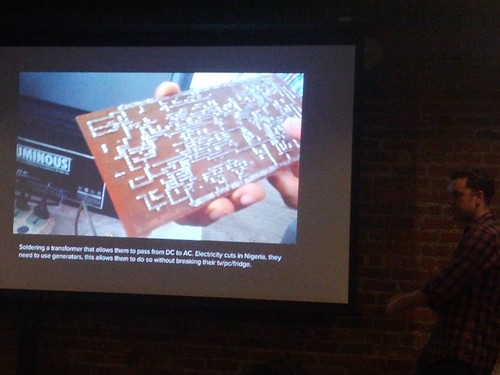
A boy extracting DNA of strawberry.
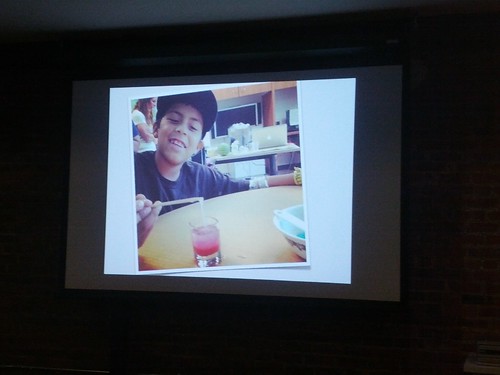
It's open source knowledge to physical making :D
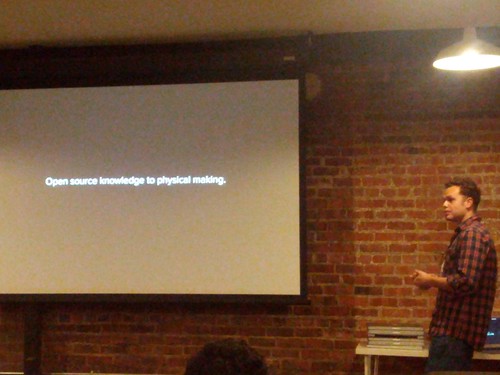
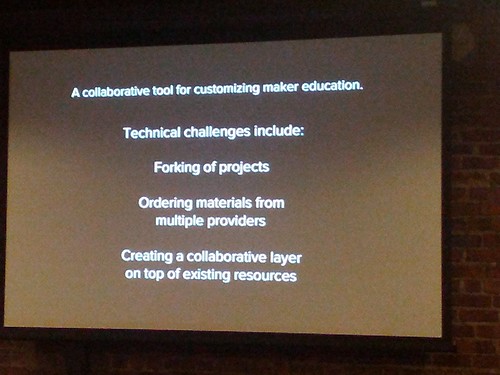
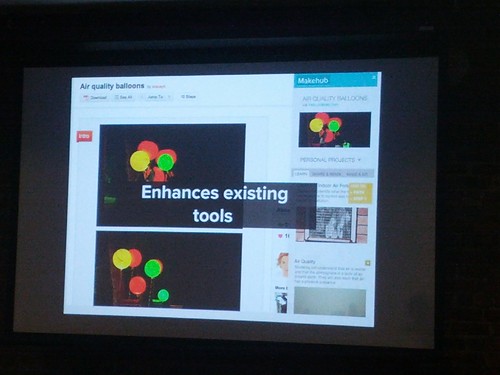
Message video:
Video of Hackidemia in Nigeria:
Making a circuit to convert DC to AC.

A boy extracting DNA of strawberry.

It's open source knowledge to physical making :D

So far they used a Google site for sharing all of the resources with the mentors, parents and teachers, but because the number of mentors is increasing a lot, they want to develop something more scalable. A web app where makers, parents and teachers can update each others instructions and order parts easily.
The Hackidemia web will provide a layer of meaning and action for the vast world of maker projects found across the internet. The app does this in the following ways:
• Users can save projects to their personal lab to share, revisit, and remix later.
• Users can buy the required materials for any online project directly through HacKIDemia's web app. This is possible through their network of materials providers, and an interface that makes building user's shopping list and ordering as easy and copy, paste, click.
• The app connects makers and educators with related content, activities, and curriculum from across the web. This is possible through a partnership with open education platforms like Khan Academy and Gooru.
The Hackidemia web will provide a layer of meaning and action for the vast world of maker projects found across the internet. The app does this in the following ways:
• Users can save projects to their personal lab to share, revisit, and remix later.
• Users can buy the required materials for any online project directly through HacKIDemia's web app. This is possible through their network of materials providers, and an interface that makes building user's shopping list and ordering as easy and copy, paste, click.
• The app connects makers and educators with related content, activities, and curriculum from across the web. This is possible through a partnership with open education platforms like Khan Academy and Gooru.


Message video:
== Opening ==
Laura Gramann, the organizer of Hack4Good opening the hackathon.
Alex from Code for America welcoming the participants.

== Demos ==
We've had our colleagues from Developer Relations team- Wolff Dobson and Paul Saxman give presentations about some of the newest Google technologies and tools that they can use.

== Photos from hackathon ==








== Venue ==





== Swags ==
Hack4Good T-shirts- Where there is Google event... there is a Google T-shirt... ;)
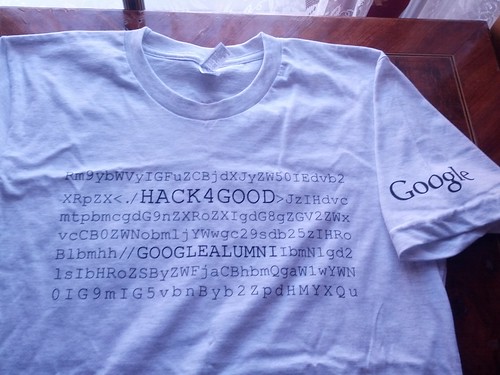
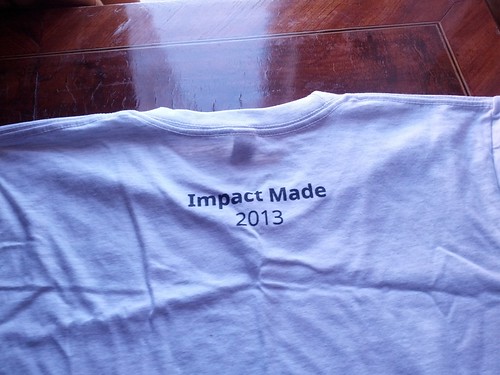
Raffle event many times, with a mobile battery present.
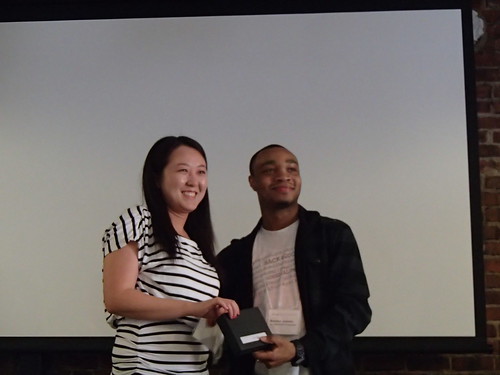
Hack4Good customized M&M's
== Swags ==


Raffle event many times, with a mobile battery present.

== Food ==





== Judging Criteria ==
They had the following 5 judging criteria:
Impact: How much impact (scale and quality) could the solution have?
Complexity: Does the proposed solution have many moving parts (figuratively or physically)?
Sustainability: How well is the proposed plan prepared for implementation?
Creativity: Does use existing technology in a new way? Was the solution crated from scratch? Is its approach unique?
Presentation: How well did the team communicate their idea? How well did they respond to questions from judges?
Disclaimer: The opinions expressed here are my own, and do not reflect those of my employer. -Fumi Yamazaki

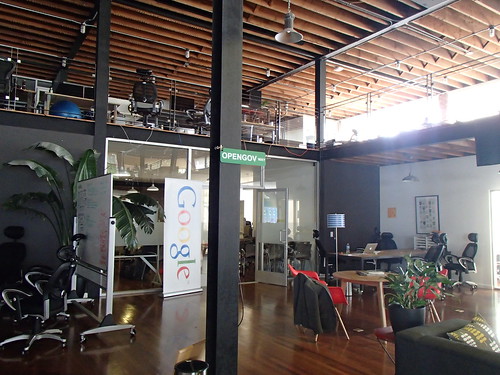
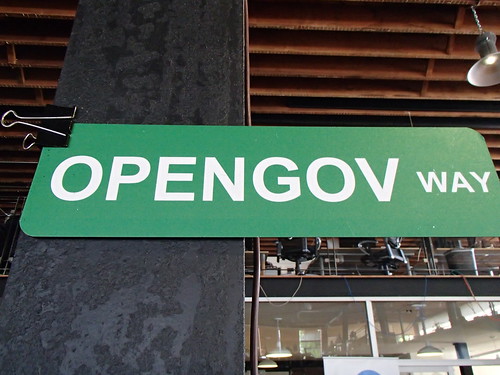
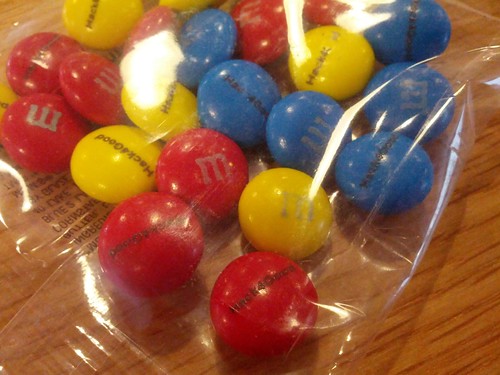
0 件のコメント:
コメントを投稿